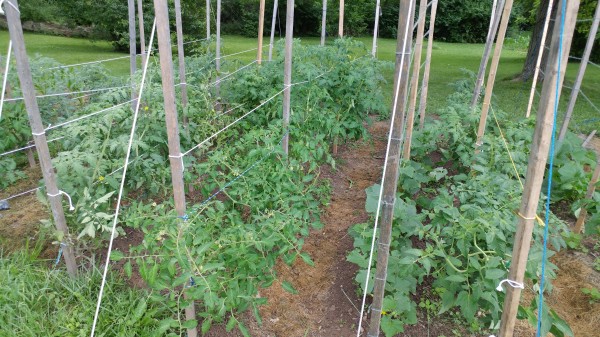-

Erin Donahue -

Christina Barkanic -

Brittany Trott -

Emily Wiley -

Jessica Reilley -

Chris Raines -

Will Nichols -

Emily Reddy -

Michele Marchetti -

Michele Frank -

James Gherardi -

Kit Henshaw -

Christina and Erin -

Kim Tait -

Erin McKinney -

Steve Spanelli -

Sam Komlenic -

Katherine Taylor Grofic -

James Eisenstein -

Jamie Oberdick -

Anna Lombardo -

LacCreta Holland -

Tony Ricci -

Local Food Journey -

Laura Young -

Kristin Camplese -

Harrison's Fresh + Local -

Danielle Matalonis -

Kristine A. -

Linda Weaver -

Naomi Elle Schwartz -

Dana Stuchul -

Cara McShane -

Brittany Smith -

Jessica Illuzzi - Frosty
-

Jessica Paholsky -

James Sechrengost -

Brad Yeckley -

Maya Althouse -

Jordan Reabold -

Kim Chase -

Maria Bryant - Alexandrea Scott
Six chores for the July garden
Posted by Jamie Oberdick on 07/12, 2017 at 07:53 AM

It’s July in Central Pennsylvania, a great time to be a gardener. If you’re a three-season gardener like me, the spring vegetables have run their course and summer vegetables and herbs are in full swing. There’s always plenty to harvest, and many of us are already overwhelmed by zucchini and cucumbers. Tomatoes are ripening, and young winter squash and pumpkins are showing up on vines.
Of course, part of this is maintaining and managing your garden to make sure it doesn’t falter at any point. Here’s six July garden chores to help ensure a great harvest through the summer and into the fall:
- Protect your tomatoes from soil-born diseases: During summer thunderstorms, dirty water can splash up on your tomato leaves and spread diseases, including fatal ones like late blight. You can help prevent these diseases by spreading a hay or grass clipping mulch around the base of the plant, and trimming off suckers and leaves from the plant’s bottom. Pruning the tomato plant in this manner also helps prevent disease by improving airflow.
- Be on pest patrol: This includes four-legged, six-legged, and legless pests. Keep your eyes peeled daily for plant damage, and immediately address them in the way you feel comfortable. For example, you don’t have to kill rabbits to remove them, you can either put in a fence or live trap and move them. For bugs, there are scores of effective organic pesticides like neem oil. Or, you can just remove the bug and squash it, like tomato hornworms and Japanese beetles.
- Keep your plants hydrated: The standard for plants is about an inch of water a week. If mother nature doesn’t provide it, then you need to. Always water the base of the plant, and try to avoid wetting the leaves, which can encourage diseases. Deep watering is best, and a soaker hose is a good option.
- Kill the competition: Weeds provide cover for pests, block light, and compete with the good plants for food. Put on your favorite podcast or music on your earbuds and get to pulling them out. Take care to settle any dirt you disturb around the plants, and if you get the weeds before they go to seed, you can use them for green manure. If you haven’t been able to weed for a bit, you may find your younger plants flop over after clearing out the weeds. That’s fine, it’s because the weeds were their support, and they’ll recover.
- Sow now for fall crops: Many fall crops, like broccoli, turnips, beets, beans, and cabbage, can be sowed in July. Take a look at what you’re planning to plant so you don’t miss any sowing time, as some plants need a set amount of days to reach maturity for harvest. A bonus: Many vegetables, especially root ones, taste even better after a good solid frost.
![]() Author: Jamie Oberdick
Author: Jamie Oberdick
Bio: Editor, Local Food Journey | Passionate about supporting local food in Central PA
- Our Local Food Journey comes to an end
- Winter isn’t a quiet time at the farm
- Get the taste of garden season right now by growing herbs indoors
- All you need to know about PASA’s Farming for the Future conference









NO COMMENTS